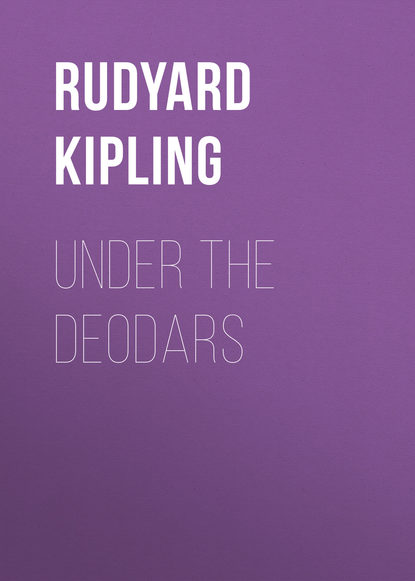По всем вопросам обращайтесь на: info@litportal.ru
(©) 2003-2025.
✖
Under the Deodars
Настройки чтения
Размер шрифта
Высота строк
Поля
“That’s a woman with a mission, and no mistake,” said Pagett, after a pause.
“Yes; she believes in her work, and so do I,” said Orde. “I’ve a notion that in the end it will be found that the most helpful work done for India in this generation was wrought by Lady Dufferin in drawing attention-what work that was, by the way, even with her husband’s great name to back it to the needs of women here. In effect, native habits and beliefs are an organized conspiracy against the laws of health and happy life – but there is some dawning of hope now.”
“How d’ you account for the general indifference, then?”
“I suppose it’s due in part to their fatalism and their utter indifference to all human suffering. How much do you imagine the great province of the Pun-jab with over twenty million people and half a score rich towns has contributed to the maintenance of civil dispensaries last year? About seven thousand rupees.”
“That’s seven hundred pounds,” said Pagett, quickly.
“I wish it was,” replied Orde; “but anyway, it’s an absurdly inadequate sum, and shows one of the blank sides of Oriental character.”
Pagett was silent for a long time. The question of direct and personal pain did not lie within his researches. He preferred to discuss the weightier matters of the law, and contented himself with murmuring: “They’ll do better later on.” Then, with a rush, returning to his first thought:
“But, my dear Orde, if it’s merely a class movement of a local and temporary character, how d’ you account for Bradlaugh, who is at least a man of sense taking it up?”
“I know nothing of the champion of the New Brahmins but what I see in the papers. I suppose there is something tempting in being hailed by a large assemblage as the representative of the aspirations of two hundred and fifty millions of people. Such a man looks ‘through all the roaring and the wreaths,’ and does not reflect that it is a false perspective, which, as a matter of fact, hides the real complex and manifold India from his gaze. He can scarcely be expected to distinguish between the ambitions of a new oligarchy and the real wants of the people of whom he knows nothing. But it’s strange that a professed Radical should come to be the chosen advocate of a movement which has for its aim the revival of an ancient tyranny. Shows how even Radicalism can fall into academic grooves and miss the essential truths of its own creed. Believe me, Pagett, to deal with India you want first-hand knowledge and experience. I wish he would come and live here for a couple of years or so.”
“Is not this rather an ad hominem style of argument?”
“Can’t help it in a case like this. Indeed, I am not sure you ought not to go further and weigh the whole character and quality and upbringing of the man. You must admit that the monumental complacency with which he trotted out his ingenious little Constitution for India showed a strange want of imagination and the sense of humor.”
“No, I don’t quite admit it,” said Pagett.
“Well, you know him and I don’t, but that’s how it strikes a stranger.” He turned on his heel and paced the veranda thoughtfully. “And, after all, the burden of the actual, daily unromantic toil falls on the shoulders of the men out here, and not on his own. He enjoys all the privileges of recommendation without responsibility, and we-well, perhaps, when you’ve seen a little more of India you’ll understand. To begin with, our death rate’s five times higher than yours-I speak now for the brutal bureaucrat – and we work on the refuse of worked-out cities and exhausted civilizations, among the bones of the dead.”
Pagett laughed. “That’s an epigrammatic way of putting it, Orde.”
“Is it? Let’s see,” said the Deputy Commissioner of Amara, striding into the sunshine toward a half-naked gardener potting roses. He took the man’s hoe, and went to a rain-scarped bank at the bottom of the garden.
“Come here, Pagett,” he said, and cut at the sun-baked soil. After three strokes there rolled from under the blade of the hoe the half of a clanking skeleton that settled at Pagett’s feet in an unseemly jumble of bones. The M.P. drew back.
“Our houses are built on cemeteries,” said Orde. “There are scores of thousands of graves within ten miles.”
Pagett was contemplating the skull with the awed fascination of a man who has but little to do with the dead. “India’s a very curious place,” said he, after a pause.
“Ah? You’ll know all about it in three months. Come in to lunch,” said Orde.

















